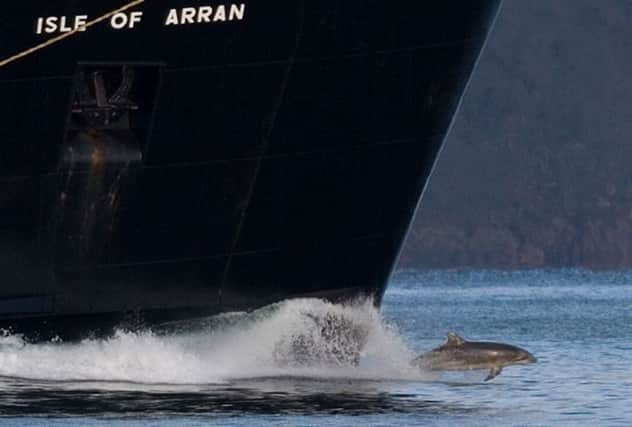Famous French dolphin turns up in Scottish waters


The bottlenose dolphin was named Clet by locals in Cap Sizun, Brittany, where he was regularly spotted by fishermen between 2008 and 2010.
He has since been seen off Cornwall and Wales, before turning up off the coast of Ireland where he was suspected of being aggressive towards swimmers in September.
Advertisement
Hide AdAdvertisement
Hide AdClet, who has distinctive scarring on the dorsal fin, was spotted following a ferry between Oban and the Isle of Mull on Tuesday when he was photographed by wildlife photographer Nic Davies close to shore from Craignure.
CONNECT WITH THE SCOTSMAN
• Subscribe to our daily newsletter (requires registration) and get the latest news, sport and business headlines delivered to your inbox every morning
Researchers at the Hebridean Whale and Dolphin Trust believe it is the first time he has been recorded in Scotland, saying it is the furthest north he has been seen.
Dr Conor Ryan, sightings officer at the trust, said: “Bottlenose dolphins are usually considered to be resident to certain areas, so long-distance international movements such as this challenge our understanding of this species, and also challenge our ability to protect them using Marine Protected Areas alone.”
Photographer Mr Davies said: “I was out photographing otters when I heard a loud blow sound just out from the shore, and then I spotted the dolphin heading at speed towards a departing ferry.”
Experts believe Clet could remain in the Sound of Mull area for weeks or even months and are asking boat owners to give him the space he needs.
Padraig Whooley, of the Irish Whale and Dolphin Group, said: “We think it’s remarkable that Clet’s movements can be tracked to the Irish south and west coasts from France via English and Welsh waters, using images from the general public.
“The addition of Scotland after a two-month interval brings his known tally of passport stamps to five countries and counting, and shows the need for international collaboration when trying to monitor these highly mobile marine mammals.”
SCOTSMAN TABLET AND IPHONE APPS